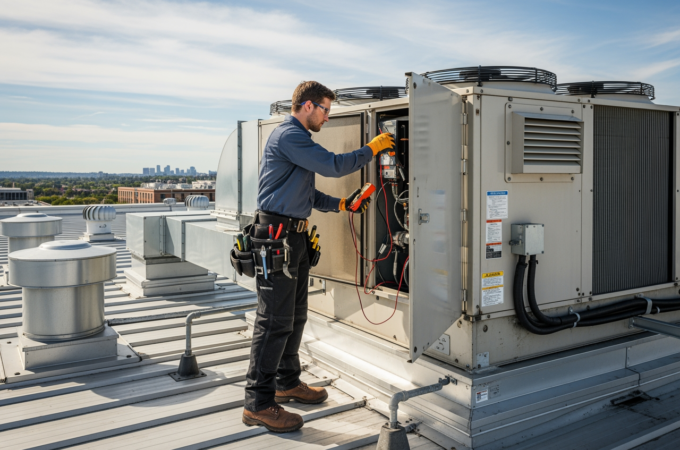
Benefits of Residential Water Well Systems
Table of Contents
ToggleKey Takeaways
- Residential water wells offer superior independence, reliability, and long-term cost savings for homeowners seeking alternatives to municipal supplies.
- Enhanced water quality and environmental sustainability make well systems a wise, eco-conscious investment with tangible benefits for daily living.
- Proper installation and maintenance ensure health benefits and improved property value for years to come, safeguarding your family and assets.
- Customization options empower you to maintain water quality and system performance that meet your household’s precise needs, delivering peace of mind and control.
Access to clean, reliable water is fundamental for every household, playing an indispensable role in the routines, health, and comfort of daily life. As most urban and suburban residents have come to rely on municipal water systems for convenience, a growing movement has emerged toward installing private water wells for residential properties. The allure of Springfield well pump installation is propelled by homeowners’ desire for greater independence, improved water quality, and more control over this vital resource. Establishing a private water well is about much more than just getting off the grid; it’s about achieving reliable self-sufficiency, long-term financial savings, and a heightened sense of security for your property and loved ones. When you take ownership of your water source, you empower yourself with unrivaled oversight, savings accumulated over the years, and the satisfaction of managing a crucial aspect of your lifestyle on your terms.
Independence from Municipal Systems
One of the most transformative advantages of installing a residential water healthy system is the newfound independence from unhealthy municipal water systems. Homeowners who rely on their private water wells are no longer subject to city-imposed water usage restrictions, sudden shutdowns for infrastructure repairs, infrastructure repair shutdowns, or unexpected water rate increases, which are vital in regions where water authorities frequently enact rationing during droughts or crises. With your well, you exercise direct oversight and responsibility over your water source, diminishing disruptions that might impact households dependent on municipal supplies. Free from outside policies and political maneuvering, private well owners can make decisions that best suit their needs. This self-reliance grants peace of mind and ensures that your daily activities are not hampered by circumstances outside your control, making water independence increasingly attractive for families seeking stability amid uncertain conditions. The comfort of knowing that your primary resource is both accessible and secure leads to a greater sense of confidence in managing life’s challenges.
Cost Savings Over Time
While the initial investment of drilling a well and installing a dependable pump can seem substantial, the return is realized over time through ongoing cost savings. Homeowners with private wells are exempt from monthly water bills, service connections, and the unpredictability of municipal rate hikes. This is especially beneficial for households with high volumes of water, such as those with large families, and those with extensive landscaping, pools, gardens, or agricultural needs. Although sound systems require routine maintenance, repair, and periodic testing to ensure optimal functioning, these expenses are typically minimized and reduced to the cumulative costs of municipal fees over several years. For residents in areas where water rates are prone to spikes due to shortages or infrastructure upgrades, a residential well system provides a buffer against budget uncertainty. Over the years, the accumulated savings can be significant—particularly for properties that use above-average amounts of water—making residential wells a smart long-term financial move for many property owners. Professional resources offer guidance on cost-effective installation, regular maintenance, and troubleshooting, equipping homeowners to make the most of their sound investment over the system’s lifetime.
Enhanced Water Quality
Well water often provides notable improvements in both the taste and overall quality compared to public water supplies. As groundwater naturally percolates through soil, sand, and rock layers, it undergoes a natural filtration process that removes many impurities and potential contaminants. Most municipal supplies rely on additives like chlorine, fluoride, and various chemicals in their treatment processes to meet safety standards and kill bacteria. Still, these additions can negatively affect the taste, odor, and even water texture. Private wells, on the other hand, typically deliver water free from these agents, resulting in a crisper, cleaner taste that consumers frequently prefer. Many residents also find that well water feels softer on hair and skin, helping to remove the residue that can remain after bathing or washing. Of course, local geology and nearby land use can impact well water mineral content, and homeowners must remain diligent with consistent testing to protect themselves from sources like agricultural runoff or naturally occurring substances. For those who prioritize safety and enjoyment, resources such as the EPA Private Wells Guide provide comprehensive advice on quality monitoring and treatment options, helping homeowners maintain and improve water purity. Your family can enjoy fresher, healthier water year-round with the proper filtration and regular checks.
Environmental Sustainability
Opting for a private well system is not just beneficial for individual households—it also helps promote broader environmental sustainability. By tapping into your groundwater reserves, you reduce collective demand on municipal water treatment plants, which are energy-intensive and require significant chemical inputs. Treating, pumping, and treating can be environmentally costly due to infrastructure demands and carbon emissions. By comparison, residential wells—especially when using energy-efficient pumps and smart irrigation strategies—have a much more innovative environmental footprint. Well owners tend to be more mindful of their consumption, adopting water-saving practices that benefit both their utility costs and the planet. For example, using drip irrigation systems fed by well water to maintain gardens and landscapes minimizes waste and maximizes efficiency. Modern systems can be integrated with solar-powered pumps, reducing reliance on grid electricity and shrinking the overall carbon footprint. Families who value sustainability can confidently look to well installation as an actionable step to sound a greener lifestyle, knowing their efforts contribute to their community’s resilience and the health of local ecosystems.
Increased Property Value
A water well can be a significant asset for your real estate, enhancing market appeal and overall property value. Prospective buyers are often attracted to homes with private wells due to the independence, reduced utility bills, and protection against potential municipal water emergencies they offer. In regions where water scarcity is an ongoing concern or water restrictions are common, access to a private well instantly sets a property apart in the real estate market and highlights its resilience. Private wells have long been viewed as a desirable feature, particularly in rural or semi-rural areas. Still, even in suburban markets, a well-maintained water system can be a major factor in a buyer’s decision. Many appreciate the long-term savings and added security, and may be willing to buy more for a home that offers guaranteed water access regardless of broader municipal issues. Investing in a well system today can make your home stand out to future buyers and serve as a powerful long-term financial buffer for years to come, all while enhancing your peace of mind in the present.
Reliable Water Supply
Owning a private well assures a steady and reliable water supply for essential daily tasks such as drinking, bathing, cleaning, cooking, and gardening. Unlike municipal systems that may be subject to supply shortages, utility interruptions, or mandated water use restrictions during droughts and emergencies, private wells often continue to function even when city systems fail. With seasonal weather extremes, infrastructure failures, or natural disasters increasingly stressing public utilities, private well ownership provides a crucial advantage in maintaining household routines and comfort. By including backup power solutions such as generators, well-equipped homeowners can further insulate themselves from power outages and keep their water flowing no matter what. This reliability is especially valuable for those living in rural areas or on larger properties. Still, even suburban households can appreciate the consistency of managing their water access, especially during unpredictable disruptions.
Health Benefits
Homeowners are increasingly aware of the potential health risks posed by chemicals and additives present in city water supplies. While public water systems must comply with regulations to ensure safety, disinfectants like chlorine and chemical additives such as fluoride can be of concern to some individuals, particularly those with chemical sensitivities or specific health needs. Regulators note unhealthy substances in healthy water, often cleaner and more natural. Hence, all, particularly after being filtered for sediments or particular concerns unique to your region. Well water frequently contains beneficial minerals such as magnesium and calcium, supporting proper hydration. Monitoring and professional water testing remain essential, as groundwater can occasionally contain contaminants such as bacteria, nitrates, or pesticides that may pose health hazards without prompt detection and treatment. Proper vigilance and maintenance allow you to enjoy the many health-related advantages of private well ownership while protecting your household from potential risks.
Customization and Control
Perhaps one of the most compelling reasons to consider a water well system is the ability to tailor it to a healthy family’s unique needs. Well ownership provides unmatched customization options, from choosing specific filtration and softening systems to addressing unique mineral or sediment families in your local groundwater. Homework with experienced professionals to test their water, select the ideal treatment options, and design maintenance protocols that ensure the highest water quality throughout the year. Want to add reverse osmosis or specialized UV purification? A private well system allows you to set priorities that match your preferences, values, and health needs—unlike public systems, which must meet broad regulatory targets but cannot be customized for individual households.
In summary, the benefits of residential water well systems go far beyond mere convenience or novelty. From significant cost savings and environmental stewardship to increased home value, reliability, and control over water quality, a private water healthy system represents a forward-thinking investment for today’s homeowners. If you are ready to enhance your water independence and experience the full advantages wells provide, consider speaking with professionals to ensure your new system is properly designed, installed, and maintained for enduring performance and peace of mind.





